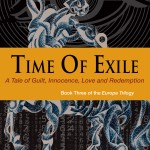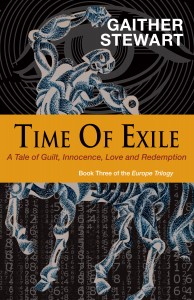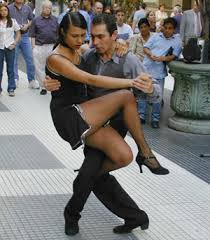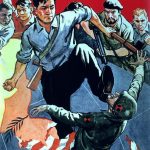
CALEB MAUPIN
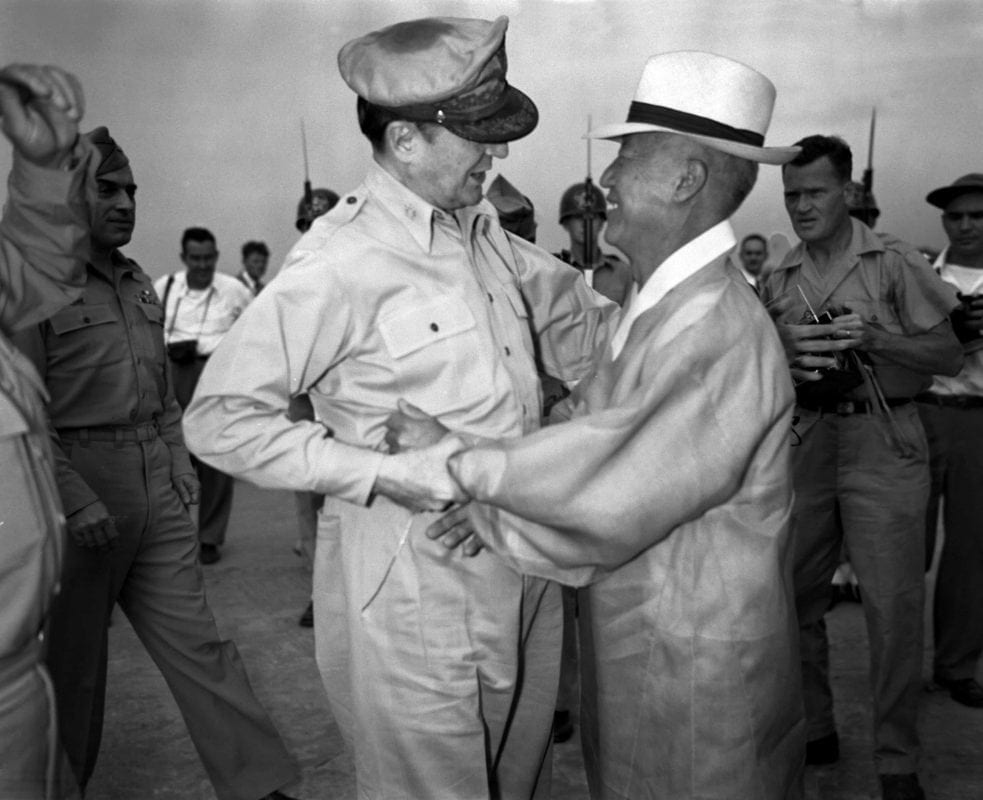
Washington’s handpicked puppet, Syngman Rhee, embraces his lord protector, Douglas MacArthur, Supreme Commander for Allied Powers. MacArthur was a hardcore warmongering reactionary who went so far he had to be restrained and eventually dismissed by Truman.
Often, when people are first becoming personally acquainted with me and my political views, I will be asked point-blank: “Do you support North Korea?” I always respond, “No, I don’t support North Korea. I support all of Korea.”
Among average Americans and even many who consider themselves activists and leftists, there is a great deal of confusion about issues involving the Democratic People’s Republic of Korea (DPRK) and its history. Each time there is an escalation of tensions on the Korean Peninsula, the level of confusion seems to get worse. The US media makes no effort to educate the public about why Korea is divided — and often blatantly distorts and lies about it.
Why is Korea Divided?
Prior to the Second World War, the Korean Peninsula was occupied by Japan, which carried out horrendous atrocities against the Korean people. Korean women were forced into sexual slavery by the Japanese military.
When Korean pacifist Christians went out to protest against Japan in March of 1919, over 7,000 of them were killed. The Japanese military retaliated against nonviolent acts of civil disobedience by randomly setting schools on fire and causing hundreds of Korean children, who had nothing to do with the protests, to die in the flames. Tens of thousands of Koreans were rounded up and tortured by the Japanese on the mere suspicion of involvement in the pacifist, anti-Japanese protest movement.
After the failure of peaceful, nonviolent struggles, Koreans took up arms against the Japanese occupiers. In the 1920s and 30s, Kim Il Sung and others received military and political training from the Soviet Union. The Chinese Communist Party and the Korean Communist Party often closely cooperated in their activities. Armed Korean and Chinese Communists received a lot of guns and money from the Soviet Union as they fought for basic democratic rights against Japanese occupiers.
When the Second World War ended in 1945, the northern half of the Korean Peninsula had been liberated by Soviet troops. The southern half of the Korean Peninsula soon became occupied by US troops. In the northern part of the country, the major anti-Japanese resistance political parties — including communists, Social Democrats, agrarian revolutionaries, Christians, and many others — merged in 1948 to form the Korean Workers Party.
The understanding at the war’s conclusion was that there would be a nationwide election, in which every political party, including the very popular Korean Workers Party, would be allowed to participate in writing a new constitution.
However, in the southern half of the Peninsula, a military dictatorship was established. Syngman Rhee seized power and violently suppressed all opposition. The Rhee dictatorship was openly supported by the United States. Thousands of US troops poured into the country to prop up the military regime.
When democratic and labor activists living on Jeju Island rose up against Syngman Rhee to demand the free elections promised at the end of the war, US troops joined Rhee’s forces in slaughtering thousands of innocent civilians. Thirty thousand people — roughly one out of every ten people living on Jeju Island — were killed in the aftermath of the uprising.
In response to US military occupation of the southern half of Korea, the canceling of free elections, and the slaughter of innocent Korean civilians by US troops, the Democratic People’s Republic of Korea (DPRK) based in the northern territories of the peninsula, sent forces into the south, hoping to reunify the country and drive out US troops.
The response to the attempted reunification was the horrific United Nations “police action,” more commonly known as the Korean War. The United States bombed every building above one story tall in the northern half of the country. Dams were bombed in order to cause mass flooding of civilian areas. Between 3 and 4 million Koreans were killed.
An armistice was declared in 1953 — but the United States never signed a peace treaty, as was agreed upon. The Korean War technically never ended, and the United States has not even recognized the DPRK as a legitimate government.
“Democracy” in Southern Korea? During the majority of the years between 1945 and today, the southern half of the Korean Peninsula has been ruled by unapologetic military dictators. Syngman Rhee and Park Chung Hee made no pretense of being democratic. They were violent, repressive military autocrats who were fully supported by the United States. Tens of thousands of US troops have been in southern Korea since the end of the Second World War, and often the US troops were used to violently suppress democratic uprisings against the Rhee and Park dictatorships. After a series of student uprisings, labor protests, and other upsurges among the population, in the 1980s Korea transitioned toward a less repressive government. However, even today the government in southern Korea is hardly a poster child for “human rights.” The Unified Progressive Party, the only genuine opposition party in southern Korea, was forcibly broken up by the government in 2013. Five candidates from the Unified Progressive Party, who had won seats in the government, were not permitted to take office. The leader of the party, Lee Seok-ki, was sent to prison for 12 years. Her conviction was based on a tape-recorded hypothetical conversation about what to do in the event of war between the United States and the DPRK. A Korean youth named Park Jung-geun was sent to prison for 10 months in 2012, simply for re-tweeting the statements of the DPRK on social media. Park included sarcastic, anti-communist comments, and was clearly not a supporter of his northern countryfolk. He was still imprisoned. The National Security Laws in the southern part of the Korean peninsula violate any notion of “human rights” and “free speech.” In southern Korea, making any statement in support of the DPRK, or even vaguely in support of Marxism or socialism, is a very serious crime. Koreans live in fear of openly speaking about the history of their country, the continued presence of US troops, or commonly discussed political concepts like class struggle. Saying anything that could in any way be construed as positive about their northern countryfolk could very well mean being imprisoned or tortured under Korean law. The current president of the “Republic of Korea” in the southern regions of the country is Park Geun-hye. She is the daughter of the previously mentioned military dictator Park Chung Hee. Park is not only responsible for the death of tens of thousands of innocent people; he routinely employed methods of torture, collective punishment, retaliation against family members, and other extreme violations of human rights. Park Guen-hye makes no attempt to distance herself from her father or any of his autocratic practices and well documented crimes against humanity. She describes her father’s coup d’état — in which he deposed the elected government with violence and established a brutal military dictatorship — as a “revolution to save the country” from communism. Despite so much ugly repression, US media routinely calls the “Republic of Korea” in the south “democratic.” Conditions in the North
During the 1960s, 70s, and even the early 80s, the Democratic People’s Republic of Korea, in the northern parts of the country, had a very strong economy.
This fact will of course be automatically dismissed as outrageous propaganda by the average American, but it is confirmed by the BBC.
An article from BBC’s website proclaims: “At one time, North Korea’s centrally planned economy seemed to work well — indeed, in the initial years after the creation of North Korea following World War II, with spectacular results.”
“The mass mobilisation of the population, along with Soviet and Chinese technical assistance and financial aid, resulted in annual economic growth rates estimated to have reached 20%, even 30%, in the years following the devastating 1950-53 Korean war.”
“As late as the 1970s, South Korea languished in the shadow of the ‘economic miracle’ north of the border.”
The DPRK’s crisis of malnutrition during the 1990s was the result of the collapse of the Soviet Union. The agrarian parts of the Korean Peninsula are all in the south, while the north is very mountainous. Without oil from the Soviet Union, it became very hard for the DPRK’s agricultural system to function. Sanctions from the United States made it nearly impossible for the DPRK to purchase things on the international markets, and as a result, there was mass starvation.
Koreans refer to this period of mass starvation in the 1990s as the “Arduous March” and they blame the United States’ economic and military blockade of their country for it. The conditions in the northern regions of the Korean peninsula were very bad during the 1990s, and any other government would have most likely collapsed under such pressure.
The DPRK has been able to slowly recover from these disastrous years. The DPRK now trades with Russia, Iran, Venezuela, China, and other countries. The DPRK’s agricultural system has been revamped, and the country has now been able to allocate money toward the construction of new housing units and other infrastructure for the population.
The US media would like us to believe all kinds of disasters and poverty are inherent in communism. But such disasters are usually foreign-made, injected by the revolution’s enemies. A case in point: Sanctions from the United States made it nearly impossible for the DPRK to purchase things on the international markets, and as a result, there was mass starvation. This, once again, “proved to the gullible American people, that “communism doesn’t work.”
Defense spending remains a top priority in the DPRK, and almost every Korean above the age of 18 is somehow involved in the military. Those who criticize the DPRK for this forget that this is a country which is literally at war with the United States. Tens of thousands of US troops are lined up along its borders. The US military routinely rehearses dropping atomic bombs on the DPRK, and US Army General Douglas MacArthur publicly threatened to do this during the Korean War.
Koreans in the north generally feel that the proliferation of nuclear weapons has enabled them to be much more secure as a country. Now that the DPRK has the atomic bomb, the United States is far less likely to attack or invade and carry out the “regime change” it often discusses.
Critiques of the DPRK in relation to the topic of “human rights” often completely ignore the context and history of Korea. Between 3 and 4 million Koreans died in the Korean War, with no peace treaty ever signed. A similarly large amount died during the 1990s as a result of malnutrition, imposed on the country by the United States. The people of the DPRK are fighting for their very lives against the most powerful and well armed government in the world. Millions of Korean lives have already been claimed by the United States.
No country, facing such extreme threats and encirclement, can be expected to be a free, open society full of debate and discussion. The DPRK is locked down, in a state of war, fighting for its survival. No sensible person would claim it is a paradise, or an ideal model for human civilization. Under extremely hostile circumstances, the DPRK survives — primarily because of the political brilliance of the Korean Workers Party and its overall ability to mobilize and maintain the loyalty of the population.
Often the US media portrays the DPRK’s leadership as vulgar nationalists or “supremacists.” Those who fall for US media claims that the DPRK is somehow “racist” should note that the DPRK has a record of international solidarity with oppressed peoples around the world.
The DPRK was very supportive of the US Black Panther Party during the 1970s. The DPRK has come to the aid of the Palestinians.
The DPRK also supported the people of Zimbabwe as they fought against the British Empire and the apartheid settler state called “Rhodesia.” The DPRK supported the people of Angola in fighting against Portuguese colonialism. The DPRK even gave military support to Nelson Mandela and the African National Congress, while the US described them as “terrorists.”
Anti-Asian Racism and War Propaganda
Hatred for the DPRK seems to be almost compulsive in the United States. US media routinely repeats outrageous anti-DPRK allegations that have no basis in fact.
US media has claimed that women in the DPRK are forbidden to ride bicycles. This claim is easily refuted. Women in the DPRK not only ride bicycles, but have won Gold Medals in Olympic sports such as target shooting and weightlifting.
Without the slightest hesitation, US media repeated the claim that a prominent DPRK official was executed by “being eaten by a pack of wild dogs.” This outrageous story was proven to have originated in a satirical publication in China, and was never even intended to be true.
Hollywood churns out films like “Red Dawn,” “Olympus Has Fallen” and “The Interview,” all of which are dedicated to demonizing the DPRK, dehumanizing its population, and psychologically preparing the US public for war. The amount of extreme distortion associated with everything related to the situation on the Korean Peninsula should be very shocking and upsetting to any sensible person.

Still from The Interview. Ridiculing a country’s leader ends up being one of the least dangerous things done by US propaganda. Demonization is far more evil, as it paves the road for open aggression.
Many Asian Americans say the manner in which the DPRK is portrayed in US media should be offensive, not just to Koreans, but to all Asians. The anti-DPRK Hollywood film “The Interview,” which caused international tensions, involved extensive mockery of the Korean accent by white male actors. Furthermore, the film notably portrayed Korean women — who were forced into sexual slavery by Japan, and often raped by US troops during the Korean War — as mere sex objects, with white male characters crassly commenting on their bodies.
The extensive mockery of accents, clothing styles and other things in relation to the DPRK all fits into an archaic racist concept commonly called “Asiatic despotism.” At one time, the US and western European press portrayed Chinese, Vietnamese, and even Russian leaders in roughly the same way.
The racist underlying message hinted at in the endless slander and mockery of Korea’s leadership is that the peoples of Asian descent are barbaric savages, who naturally long for autocracy, and need whites to forcibly “civilize” them and teach them about “democracy.” While the extreme demonization of the DPRK’s leaders is the most blatant example, the old racist caricature of “Asiatic despots” and “Mongoloid tyrants” is gradually reemerging in relation to Xi Jinping in China and Vladimir Putin in Russia.
For the last five decades, the DPRK has called for peaceful reunification of the Korean Peninsula. The leaders of the Korean Workers Party currently ask for nothing more than what was agreed upon at the end of the Second World War. They want nationwide elections in which every party, including the communists, can participate. They also want US troops to leave.
This is hardly a radical or extreme proposal. The request of the DPRK is essentially: “Let Koreans run Korea.” There is nothing “extreme,” “crazy,” or “insane” about it.
Koreans are people — just like Americans, Western Europeans, Russians, Iranians, Chinese, or others. However, the Koreans are a people that have been subjected to almost a century of division, degradation and extreme humiliation by foreign powers.
The people of the Korean Peninsula, both in the north and the south, deserve our support and respect, not further demonization and mockery. The US media’s use of such extreme deception and racism in its portrayal of the situation on the Korean Peninsula should be a source of global outrage.
![]()
 Is an American journalist and political analyst. Tasnim News Agency described him as “a native of Ohio who has campaigned against war and the U.S. financial system.” His political activism began while attending Baldwin-Wallace College in Ohio. In 2010, he video recorded a confrontation between Collinwood High School students who walked out to protest teacher layoffs and the police. His video footage resulted in one of the students being acquitted in juvenile court. He was a figure within the Occupy Wall Street protests in New York City. Maupin writes on American foreign policy and other social issues. Maupin is featured as a Distinguished Collaborator with The Greanville Post. READ MORE ABOUT CALEB MAUPIN HERE.
Is an American journalist and political analyst. Tasnim News Agency described him as “a native of Ohio who has campaigned against war and the U.S. financial system.” His political activism began while attending Baldwin-Wallace College in Ohio. In 2010, he video recorded a confrontation between Collinwood High School students who walked out to protest teacher layoffs and the police. His video footage resulted in one of the students being acquitted in juvenile court. He was a figure within the Occupy Wall Street protests in New York City. Maupin writes on American foreign policy and other social issues. Maupin is featured as a Distinguished Collaborator with The Greanville Post. READ MORE ABOUT CALEB MAUPIN HERE.
Note to Commenters Due to severe hacking attacks in the recent past that brought our site down for up to 11 days with considerable loss of circulation, we exercise extreme caution in the comments we publish, as the comment box has been one of the main arteries to inject malicious code. Because of that comments may not appear immediately, but rest assured that if you are a legitimate commenter your opinion will be published within 24 hours. If your comment fails to appear, and you wish to reach us directly, send us a mail at: editor@greanvillepost.com
We apologize for this inconvenience.
Nauseated by the vile corporate media? Had enough of their lies, escapism, omissions and relentless manipulation?

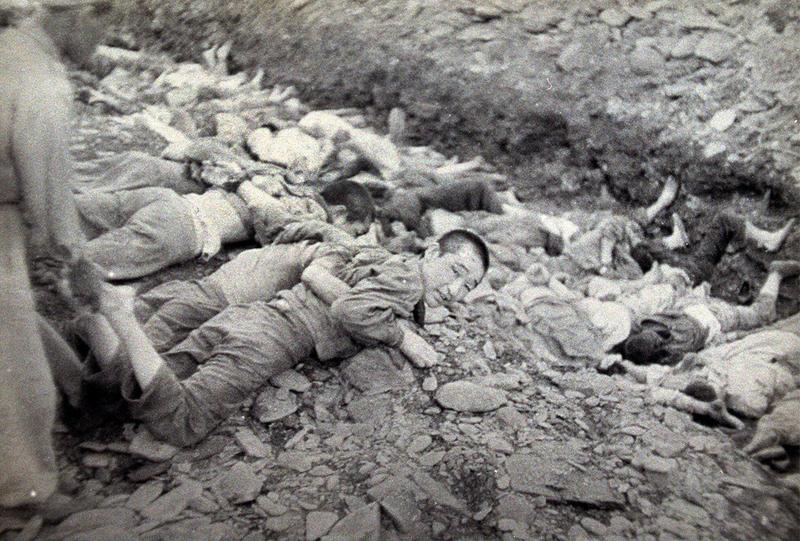

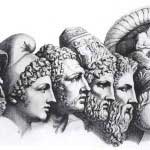
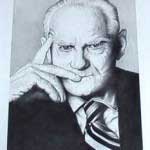
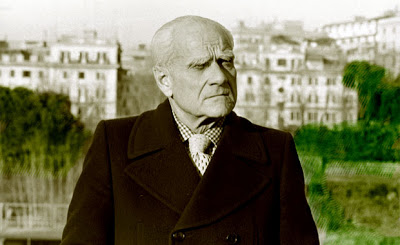
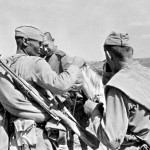
 Only fools and cowards can turn up their noses at the political novel in today’s world in which neo-liberals have created a huge economic crisis, in a world in which NATO blatantly organizes one aggression after another—against Yugoslavia, against Iraq, against Afghanistan, against Libya, against Cote d’Ivoire—overthrows disagreeable governments and installs in their place marionettes. That is, in a world governed by rotten politics.
Only fools and cowards can turn up their noses at the political novel in today’s world in which neo-liberals have created a huge economic crisis, in a world in which NATO blatantly organizes one aggression after another—against Yugoslavia, against Iraq, against Afghanistan, against Libya, against Cote d’Ivoire—overthrows disagreeable governments and installs in their place marionettes. That is, in a world governed by rotten politics.